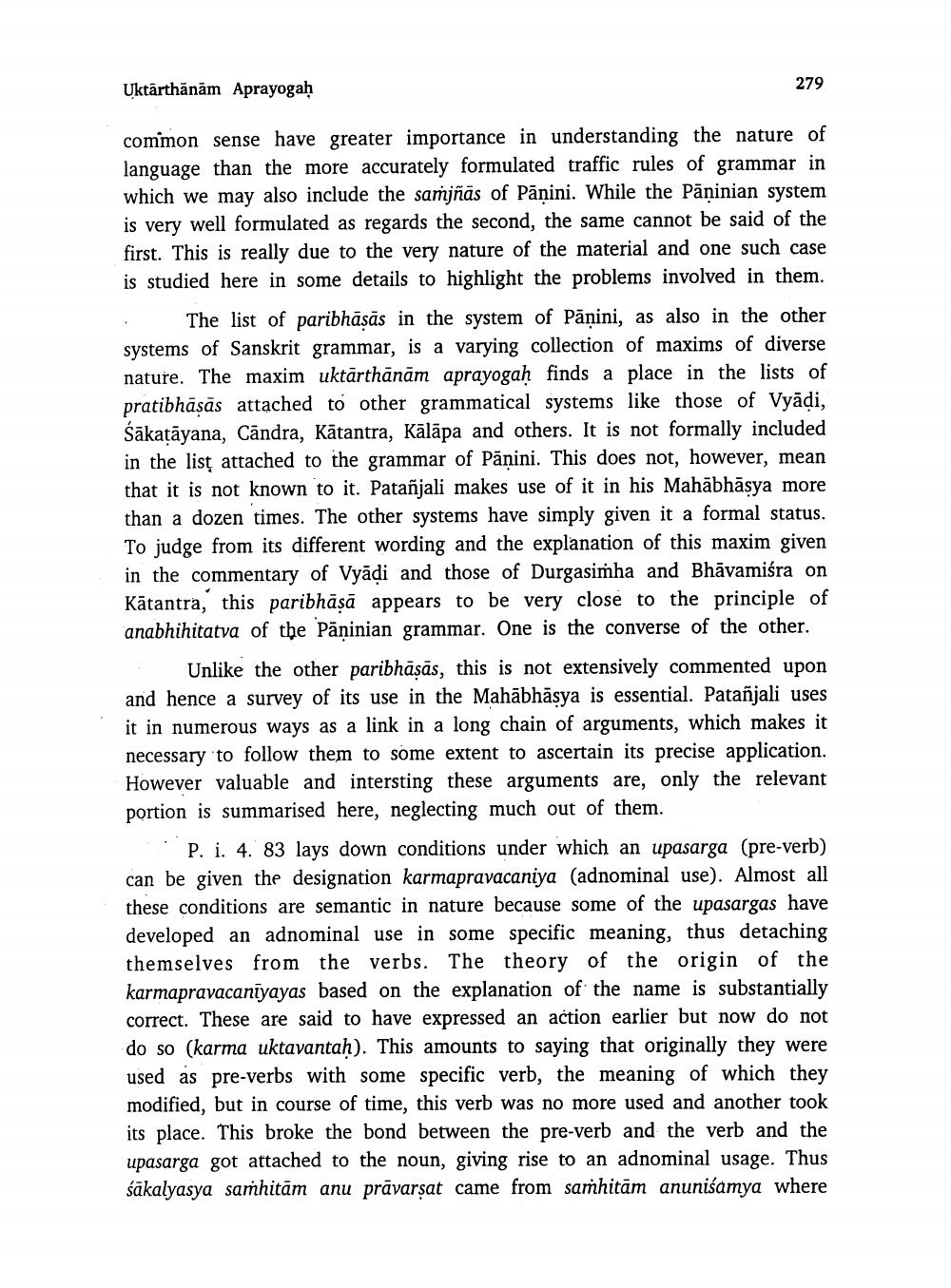________________
Uktarthānām Aprayogah
279
common sense have greater importance in understanding the nature of language than the more accurately formulated traffic rules of grammar in which we may also include the samjñās of Pānini. While the Paninian system is very well formulated as regards the second, the same cannot be said of the first. This is really due to the very nature of the material and one such case is studied here in some details to highlight the problems involved in them. . The list of paribhāsās in the system of Pānini, as also in the other systems of Sanskrit grammar, is a varying collection of maxims of diverse nature. The maxim uktārthānām aprayogah finds a place in the lists of pratibhāsās attached to other grammatical systems like those of Vyādi, Śākatāyana, Cāndra, Kātantra, Kālāpa and others. It is not formally included in the list attached to the grammar of Pānini. This does not, however, mean that it is not known to it. Patañjali makes use of it in his Mahābhāsya more than a dozen times. The other systems have simply given it a formal status. To judge from its different wording and the explanation of this maxim given in the commentary of Vyādi and those of Durgasimha and Bhāvamiśra on Kātantra, this paribhāsā appears to be very close to the principle of anabhihitatva of the Pāninian grammar. One is the converse of the other.
Unlike the other paribhāsās, this is not extensively commented upon and hence a survey of its use in the Mahābhāsya is essential. Patañjali uses it in numerous ways as a link in a long chain of arguments, which makes it necessary to follow them to some extent to ascertain its precise application. However valuable and intersting these arguments are, only the relevant portion is summarised here, neglecting much out of them.
P. i. 4. 83 lays down conditions under which an upasarga (pre-verb) can be given the designation karmapravacaniya (adnominal use). Almost all these conditions are semantic in nature because some of the upasargas have developed an adnominal use in some specific meaning, thus detaching themselves from the verbs. The theory of the origin of the karmapravacaniyayas based on the explanation of the name is substantially correct. These are said to have expressed an action earlier but now do not do so (karma uktavantah). This amounts to saying that originally they were used as pre-verbs with some specific verb, the meaning of which they modified, but in course of time, this verb was no more used and another took its place. This broke the bond between the pre-verb and the verb and the upasarga got attached to the noun, giving rise to an adnominal usage. Thus śākalyasya saṁhitām anu prāvarsat came from saṁhitām anuniśamya where




